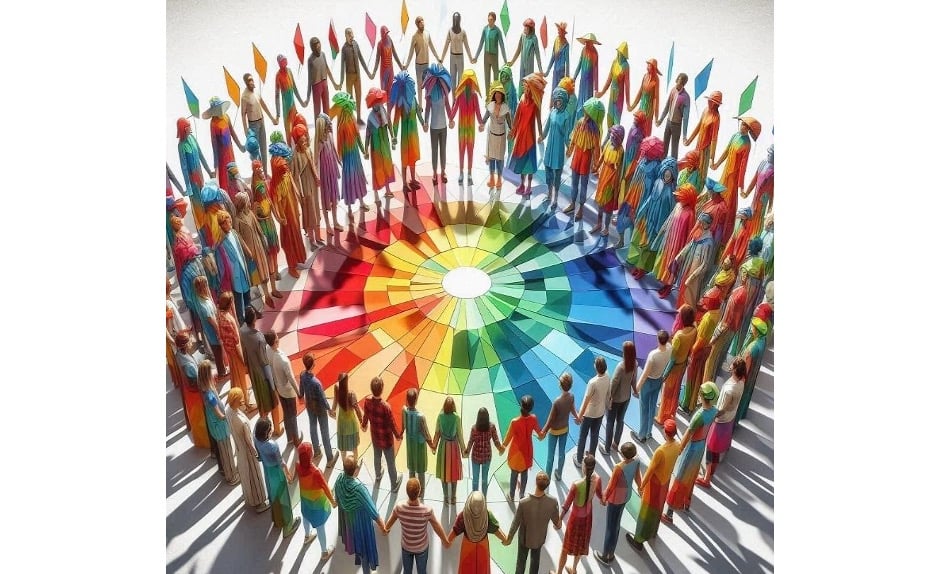From Creative Bureaucracy to Creative Democracy
The UK debut of Berlin’s Creative Bureaucracy Festival in Bristol urged attendees to rethink bureaucratic structures while celebrating innovation. Discussions spanned from new institutions to community-led micro-housing, emphasising experimentation and leveraging surplus city capacity. Insights highlighted considering positive and negative feedback loops in system change, echoing Donella Meadows' systems thinking. While enhancing Creative Bureaucracy can improve effectiveness, exploring negative feedback loops may be vital for dismantling harmful systems. This notion expanded to a call for Creative Democracy, proposing inclusive and accountable governance models, offering a promising path towards equitable and responsive governance.
LOCAL GOVERNMENTCREATIVE BUREAUCRACYBRISTOLCREATIVE DEMOCRACYSYSTEMS THINKING
Stephen Hilton & James Martin
4/26/20242 min read


This week marked a significant moment in the UK as Berlin’s Creative Bureaucracy Festival made its debut in Bristol. It found an appreciative audience at Watershed, thanks to the facilitation of Andrew Kelly and Bristol Ideas.
Under the guidance of Charles Landry, a respected author, thinker and advocate for creative cities, the festival embodied a compelling paradox. It urged attendees to reimagine bureaucratic structures, infusing them with fresh ideas and ingenuity to drive transformative outcomes. Simultaneously, as a ‘festival,’ it served as an invitation to celebrate the results of these innovations.
The discussions encompassed a diverse range of opportunities, from advocating for innovative forms of new institutions to exciting models of community-led micro-housing. Topics also delved into embracing living-lab style experimentation and exploring methods to harness untapped potential and surplus capacity within the city system. Amodst the dialogue, one crucial insight emerged: the significance of considering both positive and negative feedback loops when endeavouring to enact changes within entire systems.
Donella Meadows, the pioneering systems thinker, introduced the concept of positive and negative feedback loops to explain how systems behave and evolve over time. Positive feedback loops amplify a system, leading to either exponential growth or collapse. Conversely, negative feedback loops stabilise systems by counteracting change, maintaining equilibrium and balance.
Strengthening Creative Bureaucracy within any organisational framework undoubtedly enhances its effectiveness, yet if the entity is ultimately supporting a harmful system, it harbours the risk of extending its life while finding ingenious solutions in the margins. This underscores the need to explore how Creative Bureacracy can leverage negative feedback loops, that can moderate, slow down, or even 'hospice' outdated elements. This approach could harness people's boundless creativity to dismantle embedded hierarchies, narratives, and biases, leading to the emergence of new relationships, systems, and structures.
In this context, it was noteworthy that a call for creative 'democracy' rather than creative 'bureaucracy' also surfaced. What initially seemed like a slip of the tongue - swapping one 'ocracy' for another - gained traction throughout the day, unveiling a bold and compelling proposition. As traditional democratic models grapple with the intricacies of modern challenges, the concept of Creative Democracy appeared to present a promising path toward more inclusive and accountable governance, focused on the well-being of both people and the planet. Whether manifested through permanent Citizens' Assemblies or Juries, Commons, quadratic voting, or Public Common Partnerships, the potential of Creative Democracy certainly merits further consideration.
So, while applauding the Creative Bureaucracy Festival for fostering an environment to delve into the potential of linking creative bureaucracies and bureaucrats globally, it's equally crucial to recognise the imperative of challenging entrenched rules and power imbalances within current systems. The prospect of these structures evolving into Creative Democracies - a more equitable and responsive form of local governance - is both inspiring and invigorating. As Donella Meadows recognised, changing the paradigm is the ultimate lever - but it is certainly the most difficult to pull.
